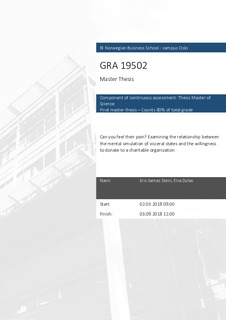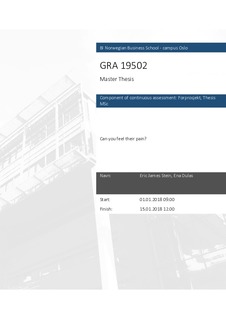| dc.description.abstract | People's behavior is heavily influenced by the visceral state they are experiencing.
Previous research has found that mental simulation can act as substitute for real
experiences. This study combines these two concepts and examines the
relationship between the mental simulation of visceral states within a charitable
giving scenario. In two studies, we have evaluated whether mentally simulating
two states — hunger and cold — will affect participants’ willingness to donate to
the charity that seeks to help those suffering from a condition caused by that state.
After engaging in the mental simulation exercise, participants of Study 1, were
given the opportunity to evaluate and allocate a donation to four real charitable
organizations. In Study 2, participants were presented with four hypothetical
charities and they were also informed that they could keep the hypothetical funds
they chose not to donate. Results from our studies yielded evidence that suggests
the mental simulation condition, the vividness of their immersion, and the current
bodily states of participants all have varying degrees of influence on donation
decision-making behavior. | nb_NO |

